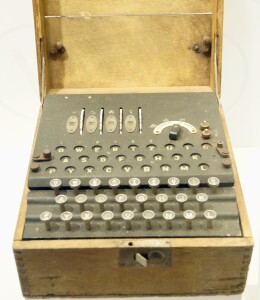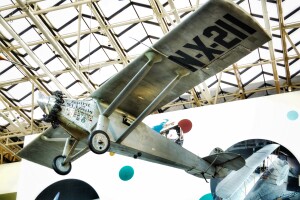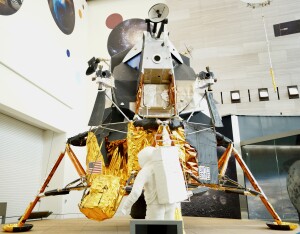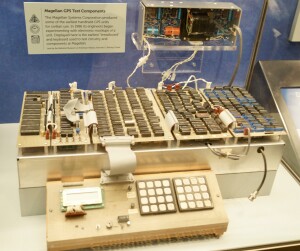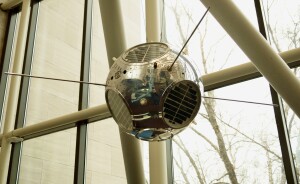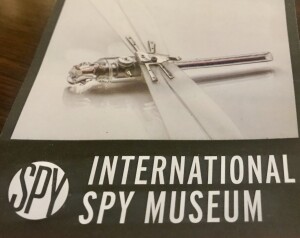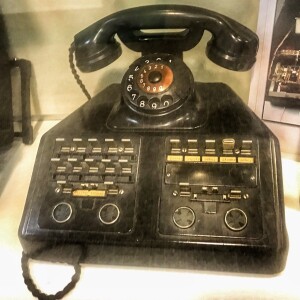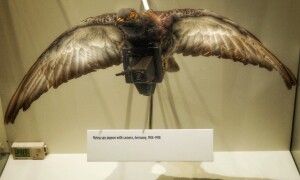Related Posts A Taste of Freedom Joe Biden The Magician Men Wearing Dresses Celebrate Mother’s Day Today Busy Night at Stone Henge as Workers Move all the Stones Forward One Hour
April 2020 archive
German Enigma Machine
This is a four rotor Enigma machine that was created by German around the time of 1943-1944. Germany built this rare Enigma for its ally, Japan. You can tell by both the character and the fourth rotor. Germany was unaware that Britain had cracked the Enigma they added the fourth rotor in 1942 to strengthen …
Videos of People Eating Disgusting Things
https://www.thekumachan.com/wp-content/uploads/Eating-bat-Soup.mp4 https://www.thekumachan.com/wp-content/uploads/Eating-Frogs.mp4 https://www.thekumachan.com/wp-content/uploads/Eating-Mice.mp4 https://www.thekumachan.com/wp-content/uploads/Eating-Tadpoles.mp4 Related Posts That’s Why They Are Called Wildlife Great Animal Escapes Beluga Feeding Time
The Spirit of St. Louis
Hanging high in the Smithsonian National Air and Space museum is the Spirit of St. Louis. This plane is best known for being flown by Charles Lindbergh on the first solo non-stop transatlantic flight from New York to London on May 20-21st, 1927. Related Posts San Diego Airport The Wright Brothers at the Smithsonian John …
Lunar Module 2
Between 1969 and 1972, six lunar modules essentially identical to this one landed a total of 12 American astronauts on the Moon. This lunar module, LM-2, never flew into space. It was built for testing in low Earth orbit, but was actually used on Earth to measure the LM’s ability to withstand the forces of …
Magellan Global Positioning System Test Components
The Magellan Systems Corporation produced some of the earliest handheld GPS units for civilian use. In 1986 its engineers began experimenting with electronic mockups of a unit. Displayed here is the earliest “breadboard” and keyboard used to test circuitry and components at Magellan. Related Posts Early Navigation Map Hello, World! The First-Ever Mobile Phone Call …
First Operational Intelligence Satellite, the GRAB I
The GRAB I was the first operational intelligence satellite that would detect pulses from Soviet radars and then relay them to ground stations where they would be sent for analysis. Related Posts Oleg Penkovsky: The Spy Who Saved the World How the Apollo 11 Moon Landing Changed Humanity Forever International Spy Museum Army Cipher Device
International Spy Museum Mechanical Dragonfly
At the International Spy Museum located in Washington D.C. there are many interesting things that can be found. Here is a graphic depicting a mechanical dragonfly that could be used to listen to conversations or take photos without being detected. Related Posts International Spy Museum Micro Camera International Spy Museum Army Cipher Device International Spy …
Siemens-Halske W38 Phone
This switchboard operator’s desk telephone was manufactured by Siemens-Halske in Germany. It is believe the history of this specific device was removed from one of the U.S. Missions in Germany. A close inspection of the typed labels for the switches are in German. The telephone was called “REIPOS”. The bulk of the unit is made …
Oleg Penkovsky: The Spy Who Saved the World
Oleg Penkovsky is best known for being declared as the “single most valuable agent in CIA history.” Penkovsky was a Soviet intelligence officer who volunteered to for the United States and the United Kingdom during the 1960’s. He would pass military intelligence secrets that shed light on Soviet intentions and weapon capabilities. This information proved …




